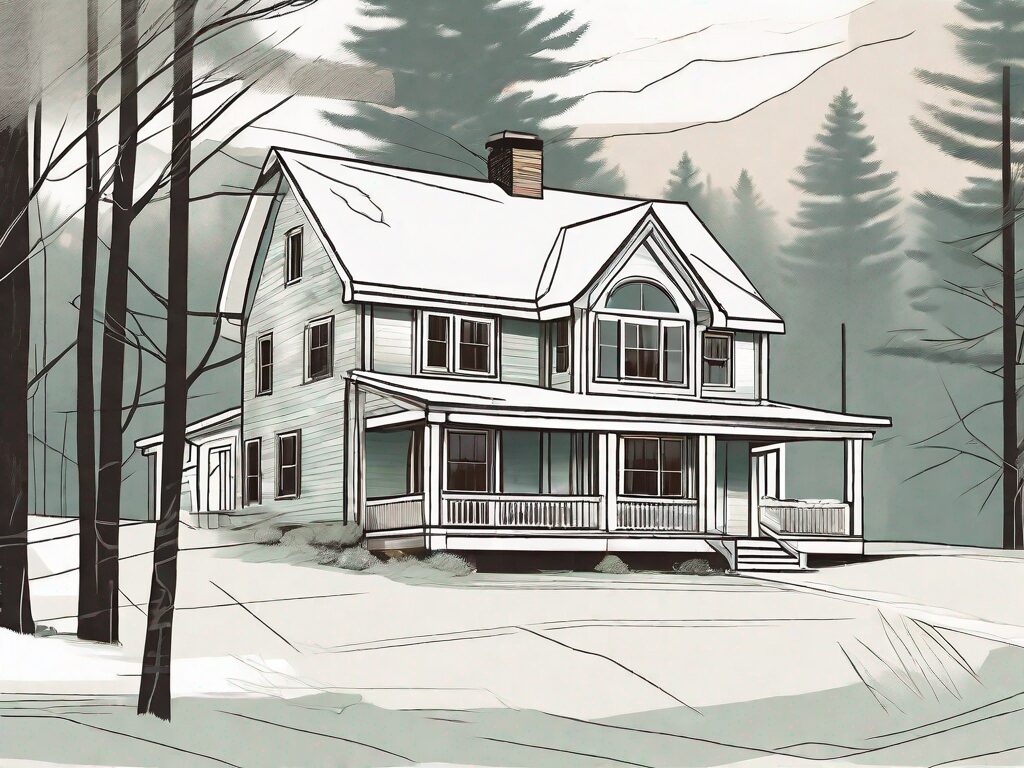
Agent A-Team or Solo Superhero? Finding the Right Real Estate Partner for Your Selling Journey in Wildwood Florida
When it comes to selling your home in Wildwood, Florida,…
January 29, 2024
Buying a home is a significant investment, both financially and emotionally. One crucial step in the home-buying process is a thorough home inspection. It allows potential buyers to assess the condition of the property, identify any potential issues, and make an informed decision. However, it’s essential to understand the cost implications of a home inspection before diving into the process. In this article, we will delve into the various aspects of home inspection costs in Vermont and shed light on who is responsible for bearing these expenses.
Home inspection costs in Vermont can vary depending on several factors. First and foremost, the size and age of the property play a significant role in determining the overall cost of the inspection. Larger and older homes tend to require more time and effort to thoroughly inspect, which can lead to higher inspection fees.
Additionally, the complexity of the inspection can impact the cost. If the home inspector needs to assess specialized systems, such as HVAC, electrical, or plumbing, the inspection may take longer and require additional expertise, thereby increasing the cost. Other factors that can influence the cost include the location of the property and the specific requirements of the mortgage lender or insurance company.
Several factors directly influence the price of a home inspection in Vermont. Let’s take a closer look at them:
In Vermont, several types of home inspections cater to different needs and preferences. Let’s explore the most common ones and their associated costs:
It’s important to note that these are just a few examples of the types of home inspections available in Vermont. Depending on the specific needs and concerns of the buyer or seller, additional inspections, such as mold or lead testing, may be necessary. Each additional inspection will come with its own associated cost.
When considering the cost of a home inspection, it’s essential to remember that it is an investment in your peace of mind and the long-term condition of the property. A thorough inspection can help identify potential issues before they become major problems, potentially saving you significant costs down the line.
When it comes to the cost of a home inspection in Vermont, it’s essential to understand who typically bears this financial responsibility. In most real estate transactions, it is the buyer who covers the cost of the inspection. The rationale behind this is that the buyer wants to ensure the property’s condition and identify any potential issues before finalizing the purchase. By hiring a professional home inspector, the buyer can make an informed decision and negotiate repairs or a lower price based on the inspection findings.
While it is common for buyers to pay for the home inspection, there can be exceptions depending on the negotiation between the parties involved. In some instances, a seller may choose to conduct a pre-listing inspection to identify any potential issues and address them beforehand. This proactive approach can increase the property’s marketability and potentially lead to a smoother transaction. In such cases, sellers may opt to bear the cost of the inspection to attract more interested buyers and showcase the property’s condition.
When preparing to buy or sell a home in Vermont, it is crucial to understand the financial responsibilities associated with home inspections. For buyers, budgeting for the cost of a comprehensive home inspection is a wise decision to ensure a thorough assessment of the property’s condition. It is also important to consider additional inspections such as radon or termite inspections if the property’s location or specific circumstances warrant them. On the other hand, sellers should evaluate the benefits of conducting a pre-listing inspection and determine whether covering the cost can potentially increase the property’s market value.
Furthermore, it is worth noting that the cost of a home inspection in Vermont can vary depending on several factors. The size and age of the property, as well as its location, can influence the inspection fees. Larger homes or those with unique features may require more time and expertise from the inspector, resulting in higher costs. Additionally, older homes may have more potential issues to assess, which can also impact the overall inspection expense.
Another aspect to consider is the scope of the inspection. While a standard home inspection covers the major systems and components of a property, there may be additional inspections that buyers or sellers might want to consider. For example, if the property is located in an area with a known radon risk, a radon inspection may be recommended. Similarly, if the property is in an area prone to termite infestations, a termite inspection might be necessary. These additional inspections come with their own costs, and it is important to factor them into the overall budget.
In conclusion, understanding the cost of home inspections in Vermont is vital for prospective buyers and sellers alike. By considering the factors that affect inspection costs and knowing who typically pays for them, individuals can navigate the process with confidence. Ultimately, a well-executed home inspection can provide valuable insights into the property’s condition and contribute to successful real estate transactions in Vermont.

If you want the Richr team to help you save thousands on your home just book a call.
 Book a call
Book a call